Contents
Get Affordable Gastric Bypass Surgery in Mexico
Struggling with obesity can feel like an uphill battle, affecting not just your appearance but also your overall health and well-being. Conditions like diabetes, high blood pressure, and joint pain often come hand in hand with excess weight, making everyday life more challenging. If you've tried diet and exercise without success, it may be time to explore a more effective solution.
Gastric Bypass in Mexico offers a life-changing opportunity for those looking to take control of their health, lose weight, and regain their confidence. Mexico has become a leading destination for bariatric surgery, thanks to its highly skilled surgeons, modern medical facilities, and affordable pricing. Patients from around the world are choosing Mexico for weight loss procedures that would otherwise be out of reach financially.
With comprehensive care and personalized treatment plans, you can achieve a healthier body and a better quality of life. If you're ready for a fresh start, now is the time to take that step toward transformation!
Key Insights at a Glance
Affordable Packages for Gastric Bypass Surgery in Mexico
Explore Gastric Bypass Surgery packages in Mexico, where we have gathered low-cost options from reliable clinics. These packages are chosen to give you great care without breaking the bank. Take a look at our listings and find the perfect package that fits your needs and budget.
`Cost of a Gastric Bypass in Mexico vs. Canada and the USA
Gastric bypass surgery in Mexico offers an affordable solution for obesity and weight management. The average cost is around $6,050, making it much cheaper than the $20,000 often charged in the US. This means you can save up to 75% while still receiving high-quality care. Factors like additional procedures may affect the price, but you can trust that quality is never compromised. Explore your options today for a healthier future!
Gastric Bypass Centers Cost Comparison in Mexico
| Provider | Procedure | Price |
|---|---|---|
| Hernia Clinic Mexico and Bariatric Center | Gastric Bypass, Obesity/Bariatric Surgery | $7000 |
| Hospital Velmar | Gastric Bypass, Obesity/Bariatric Surgery | $9699 |
| Dr. Cristobal Garza - Bariatric Surgeon in Mexico | Gastric Bypass, Obesity/Bariatric Surgery | $6949 |
| Dr. Marco Sariñana - Bariatric Surgeon in Mexico | Gastric Bypass, Obesity/Bariatric Surgery | $6050 |
Gastric Bypass Cost Comparison in Mexico
| Country | Procedure | Price |
|---|---|---|
| Canada | Gastric Bypass, Obesity/Bariatric Surgery | $20500 |
| United States | Gastric Bypass, Obesity/Bariatric Surgery | $25000 |
Best Bariatric Clinics in Mexico
Our partner clinics in Mexico offer gastric bypass and other obesity/bariatric surgery options. With skilled doctors and top-quality facilities, these centers provide great care for those seeking effective weight loss solutions. Continue reading to learn about our trusted clinic listings.
Watch Videos about Obesity Surgery in Mexico
Discover helpful videos about Gastric Bypass Surgery in Mexico. These clips will help you learn more about the procedure, what to expect, and tips for recovery. They’re here to support you and make you feel ready for your journey. Check out the videos below for valuable insights!
What other Patients Say about WLS in Mexico
Check out real patient stories about Gastric Bypass in Mexico. These reviews from Google and Trustpilot give helpful insights into what to expect!
Q&A - Cost, Clinics, Doctors for Weight Loss in Mexico
What is Gastric Bypass Surgery and how does it work?
Gastric Bypass Surgery is a type of Bariatric Surgery that helps patients lose weight by altering the digestive system. The procedure involves creating a small pouch from the stomach and connecting it directly to the small intestine. This limits food intake and reduces calorie absorption. Patients typically experience significant weight loss, which can lead to improvements in obesity-related health conditions such as diabetes and hypertension. The surgery is performed laparoscopically, which means it uses small incisions, leading to quicker recovery times.
Why choose Mexico for Gastric Bypass Surgery?
Many patients opt for Gastric Bypass in Mexico due to the high-quality medical care available at competitive prices. Mexico has numerous accredited hospitals and experienced surgeons specializing in Bariatric Surgery. Furthermore, the country is easily accessible for international patients, often offering shorter wait times compared to hospitals in the U.S. and Canada. Patients also appreciate the opportunity to combine their surgery with a vacation in a beautiful location, making the experience more pleasant.
What should I expect during recovery after Gastric Bypass Surgery in Mexico?
Recovery after Gastric Bypass Surgery typically takes a few weeks. Most patients can expect to spend 1-2 days in the hospital for monitoring. After discharge, patients should focus on a liquid diet initially, gradually transitioning to soft foods and then solids. It's essential to follow the surgeon's dietary guidelines and attend follow-up appointments. Light activity can generally be resumed within a week, but more strenuous activities should be avoided for at least a month. Staying hydrated and taking prescribed vitamins is crucial for a successful recovery.
Are there any risks associated with Gastric Bypass Surgery in Mexico?
Like any surgical procedure, Gastric Bypass carries risks. Common complications can include infection, blood clots, and nutritional deficiencies. However, when performed by qualified surgeons in accredited facilities, the risks are minimized. It's important for patients to thoroughly research their chosen clinic and surgeon, ensuring they have the necessary credentials and experience. Discussing any concerns with the medical team beforehand can help alleviate apprehensions and enhance safety during the procedure.
How can I find a reputable clinic for Bariatric Surgery in Mexico?
Finding a reputable clinic for Gastric Bypass in Mexico involves several steps. Start by researching clinics that are accredited by international organizations. Look for reviews and testimonials from previous patients to gauge their experiences. It’s also beneficial to verify the credentials and experience of the surgeons. Many patients find it helpful to consult with patient coordinators who can provide comprehensive information about the procedure and the clinic's offerings. Don't hesitate to ask questions about the facility, recovery support, and post-operative care.
Who is the Highest Rated Bariatric Surgeon in Mexico?
Identifying a single "highest-rated" bariatric surgeon in Mexico is challenging as ratings depend on various factors including patient reviews, surgical outcomes, and surgeon credentials. However, surgeons like Dr. Jorge Maytorena, Dr. Cristobal Garza, and Dr. Manuel Nunez Virgen consistently receive high praise and are considered among the best in the field. Embarking on a weight loss journey is a significant life decision, and choosing the right surgeon is paramount to its success. Mexico has emerged as a leading destination for bariatric surgery, offering a combination of highly skilled surgeons, state-of-the-art facilities, and affordable costs. If you're wondering, "Who is the highest-rated bariatric surgeon in Mexico?", you've come to the right place. While "highest-rated" can be subjective, this guide will introduce you to some of the most acclaimed and frequently praised bariatric surgeons in Mexico. These surgeons are recognized for their extensive experience, exceptional patient outcomes, and dedication to patient care. We will delve into their qualifications, the procedures they specialize in, and what patients are saying about them, providing you with a comprehensive overview to help you in your search for the best bariatric surgeon for your needs. This detailed exploration will equip you with the necessary information to make a confident and informed choice for your transformative journey. Who are the Top-Rated Bariatric Surgeons in Mexico? "While there isn't one definitive 'highest-rated' surgeon, surgeons like Dr. Jorge Maytorena, Dr. Cristobal Garza, Dr. Manuel Nunez Virgen, Dr. Ricardo Cisneros, and Dr. Rodolfo Aparicio consistently appear at the top of patient reviews and professional listings for bariatric surgery in Mexico." Mexico is home to numerous highly skilled and internationally recognized bariatric surgeons. Determining the absolute "highest-rated" can be a matter of personal preference and specific needs. However, several surgeons consistently receive outstanding reviews from patients and are held in high regard by the medical community. These surgeons often have extensive experience, impressive credentials, and a track record of successful surgeries. Among the most frequently mentioned top-rated surgeons are: Dr. Jorge Maytorena: Renowned for his expertise and patient-centered approach, Dr. Maytorena is a leading choice for medical tourists seeking quality bariatric care. Dr. Cristobal Garza: With a strong focus on safety and successful outcomes, Dr. Garza is a highly respected figure in the field of bariatric surgery. Dr. Manuel Nunez Virgen: Praised for his surgical skill and comprehensive aftercare, Dr. Nunez Virgen is another top-tier surgeon in Mexico. Dr. Ricardo Cisneros: Known for his work in advanced laparoscopic procedures and his dedication to patient well-being. Dr. Rodolfo Aparicio: A well-regarded surgeon with a reputation for excellent results and compassionate care. It's important to research each surgeon's specializations and patient testimonials to find the best fit for your individual circumstances. What Qualifications Should I Look for in a Bariatric Surgeon in Mexico? "When choosing a bariatric surgeon in Mexico, look for board certification, memberships in professional organizations (like the Mexican College for the Surgery of Obesity and Metabolic Diseases - CMCOEM), extensive experience in your desired procedure, and positive patient reviews." Ensuring your surgeon is well-qualified is crucial for a safe and successful bariatric surgery. Here are the key qualifications to look for: Board Certification: This is a fundamental indicator of a surgeon's expertise and adherence to high standards of practice. Look for certification from reputable bodies like the Mexican Board of General Surgery (CMCG) and the Mexican College for the Surgery of Obesity and Metabolic Diseases (CMCOEM). Professional Memberships: Membership in international organizations such as the International Federation for the Surgery of Obesity and Metabolic Disorders (IFSO) or the American Society for Metabolic and Bariatric Surgery (ASMBS) demonstrates a commitment to staying current with the latest advancements in the field. Experience: Inquire about the surgeon's experience, specifically the number of bariatric procedures they have performed. A high volume of surgeries often correlates with a higher level of skill and proficiency. Specialization: Ensure the surgeon specializes in the specific procedure you are considering, whether it's a gastric sleeve, gastric bypass, or another type of bariatric surgery. How Do I Find Patient Reviews for Bariatric Surgeons in Mexico? "You can find patient reviews for bariatric surgeons in Mexico on various platforms, including medical tourism websites, surgeon-specific and clinic websites, social media groups, and online forums dedicated to bariatric surgery." Patient reviews offer invaluable insights into a surgeon's practice and the patient experience. Here's where you can find them: Medical Tourism Websites: Websites like PlacidWay often feature verified patient reviews and testimonials for surgeons and clinics. Clinic and Surgeon Websites: Many surgeons and their clinics will have a dedicated section for patient testimonials and before-and-after photos. Social Media: Facebook groups and other social media platforms dedicated to bariatric surgery in Mexico can be a great source of firsthand accounts and recommendations from previous patients. Online Forums: Websites like ObesityHelp and BariatricPal have active forums where individuals discuss their experiences with different surgeons in Mexico. When reading reviews, look for consistent themes regarding the surgeon's communication, the quality of care provided by the staff, and the overall satisfaction with the surgical outcome. What are the Most Common Bariatric Surgeries Performed in Mexico? "The most common bariatric surgeries performed in Mexico are the gastric sleeve (sleeve gastrectomy), gastric bypass (Roux-en-Y), and mini gastric bypass. These procedures are popular due to their effectiveness in achieving significant long-term weight loss." Top bariatric surgeons in Mexico are proficient in a range of weight loss procedures. The most frequently performed include: Gastric Sleeve (Sleeve Gastrectomy): This procedure involves removing a large portion of the stomach, leaving a smaller, banana-shaped "sleeve." This restricts food intake and reduces the production of the hunger-inducing hormone ghrelin. Gastric Bypass (Roux-en-Y): In this surgery, a small stomach pouch is created and connected directly to the small intestine. This both restricts food intake and reduces the absorption of calories and nutrients. Mini Gastric Bypass: A simpler and quicker version of the traditional gastric bypass, this procedure also involves creating a smaller stomach pouch and bypassing a portion of the small intestine. The best surgery for you will depend on your individual health profile, weight loss goals, and the surgeon's recommendation. What is the Cost of Bariatric Surgery in Mexico with a Top-Rated Surgeon? "The cost of bariatric surgery in Mexico with a top-rated surgeon typically ranges from $4,000 to $8,000 USD. This is significantly more affordable than in the United States, where the same procedures can cost upwards of $20,000." One of the primary reasons patients travel to Mexico for bariatric surgery is the significant cost savings. The lower cost does not mean a compromise in quality, as top surgeons in Mexico use the same high-quality materials and operate in modern, well-equipped facilities. Here's a general cost comparison: Procedure Average Cost in Mexico (USD) Average Cost in the US (USD) Gastric Sleeve $4,000 - $6,000 $15,000 - $25,000 Gastric Bypass $5,500 - $8,000 $20,000 - $30,000 These prices often include not only the surgery itself but also hospital fees, surgeon's fees, and pre- and post-operative care. What are the Benefits of Having Bariatric Surgery in Mexico? "The primary benefits of having bariatric surgery in Mexico are significant cost savings, access to highly experienced and qualified surgeons, modern medical facilities, and shorter wait times for procedures." Opting for bariatric surgery in Mexico offers several compelling advantages: Affordability: As highlighted, the cost of surgery in Mexico is a fraction of what you would pay in the United States or Canada, making it accessible to a wider range of people. High-Quality Care: Many bariatric centers in Mexico are accredited by international bodies and adhere to the same high standards of care as facilities in the US. Surgeons are often trained in both Mexico and the US. Experienced Surgeons: The high volume of bariatric surgeries performed in Mexico means that surgeons have a great deal of experience and expertise. Reduced Wait Times: In countries with public healthcare systems, wait times for bariatric surgery can be lengthy. In Mexico, you can typically schedule your procedure much more quickly. All-Inclusive Packages: Many clinics offer comprehensive packages that include transportation, accommodation, and other services, making the entire process seamless for international patients. Is Bariatric Surgery in Mexico Safe? "Yes, bariatric surgery in Mexico is safe when performed by a qualified and experienced surgeon in a reputable and accredited medical facility. It's crucial to do thorough research and choose a provider with a proven track record of safety and success." The safety of your bariatric surgery in Mexico largely depends on the surgeon and facility you choose. By selecting a board-certified surgeon and a hospital that is accredited by international organizations, you can be confident in the quality and safety of your care. To ensure your safety: Verify Credentials: Confirm your surgeon's board certifications and professional memberships. Choose an Accredited Facility: Look for hospitals with accreditations from bodies like the Joint Commission International (JCI). Read Patient Reviews: Pay attention to what past patients say about their safety and the level of care they received. Have a Thorough Consultation: A reputable surgeon will conduct a comprehensive evaluation to ensure you are a good candidate for surgery and to discuss all potential risks and benefits. What Should I Expect During My Bariatric Surgery Journey in Mexico? "Your bariatric surgery journey in Mexico typically involves an initial consultation (often virtual), pre-operative tests upon arrival, the surgery itself, a short hospital stay for recovery, and post-operative follow-up care, which may continue remotely once you return home." A typical bariatric surgery journey for an international patient in Mexico follows a well-organized process: Initial Consultation: You will have an initial consultation with your chosen surgeon, often conducted remotely via video call. During this consultation, you will discuss your medical history, weight loss goals, and the most suitable surgical option. Travel and Pre-Operative Preparations: Upon arriving in Mexico, you will be transported to your accommodation. You will then undergo pre-operative tests, such as blood work and an EKG, to ensure you are ready for surgery. The Surgery: The surgery is performed in a modern, fully-equipped hospital. Most bariatric procedures are done laparoscopically, which involves smaller incisions and a faster recovery time. Hospital Stay and Recovery: You will typically stay in the hospital for one to three nights for monitoring and initial recovery. The medical team will manage any pain and help you with the transition to a liquid diet. Post-Operative Care and Follow-Up: After being discharged from the hospital, you will have follow-up appointments with your surgeon. Many clinics provide ongoing support and nutritional counseling remotely once you return home to ensure your long-term success. Ready to take the next step in your weight loss journey?Explore PlacidWay to find and connect with the highest-rated bariatric surgeons in Mexico and access comprehensive packages for your healthcare needs.
How much does Gastric Bypass Surgery Cost in Mexicali, Mexico?
Considering gastric bypass surgery is a significant step towards a healthier life, and for many, exploring options outside their home country has become a viable path. Mexicali, Mexico, has emerged as a popular destination for medical tourism, particularly for bariatric procedures like gastric bypass. One of the primary attractions is the potential for significant cost savings compared to countries like the United States. This blog post aims to provide a detailed understanding of the average price of gastric bypass surgery in Mexicali, Mexico, and answer crucial questions you might have. The average price of gastric bypass surgery in Mexicali, Mexico, typically ranges from $5,000 to $8,500 USD. This is considerably lower than in the US, where costs can soar to $20,000-$30,000 or even higher. This price difference, coupled with the proximity to the US and the availability of experienced surgeons, makes Mexicali an attractive option. However, it's vital to understand what contributes to this cost and what to expect. What is the Average Cost of Gastric Bypass Surgery in Mexicali, Mexico? "The average cost of gastric bypass surgery in Mexicali, Mexico, generally falls between $5,000 and $8,500 USD." This price range is an estimate and can fluctuate based on several factors. While significantly more affordable than in many Western countries, it's crucial to remember that the cheapest option isn't always the best. Prioritizing a reputable clinic and experienced surgeon is paramount for a safe and successful outcome. The allure of lower gastric bypass surgery cost in Mexicali should be balanced with thorough research into the quality of care. Many individuals seeking weight loss surgery in Mexico are drawn to cities like Mexicali due to the substantial savings. This cost advantage allows patients to access potentially life-changing surgery that might be financially out of reach in their home countries. However, understanding the components of this cost is essential for making an informed decision. What Factors Influence the Cost of Gastric Bypass in Mexicali? "Several factors influence the cost of gastric bypass in Mexicali, including the surgeon's experience and reputation, the hospital or clinic's facilities and accreditation, the specific type of gastric bypass procedure (e.g., Roux-en-Y), the length of hospital stay, and whether pre-operative tests and post-operative care are bundled into the price." Delving deeper, a highly experienced bariatric surgeon with a track record of successful gastric bypass surgeries may command a higher fee. Similarly, hospitals with advanced technology, international accreditations (like JCI), and comprehensive patient support services might have higher overall package prices. The complexity of your individual case can also play a role; for instance, revisional surgeries often cost more than primary procedures. It's also important to clarify if the quoted gastric bypass surgery cost in Mexicali is all-inclusive. Some packages might cover everything from initial consultations and lab work to the surgery itself, hospital accommodation, medications, and initial follow-up appointments. Others might have separate charges for certain services, so always ask for a detailed breakdown. What is Typically Included in the Gastric Bypass Surgery Cost in Mexicali? "Typically, the gastric bypass surgery cost in Mexicali includes the surgeon's fees, anesthesiologist's fees, hospital facility charges, standard pre-operative tests, medications administered during the hospital stay, and a few nights of hospital accommodation. Some packages may also include airport transfers and hotel stays before and after hospitalization." To ensure transparency, it's vital to get a comprehensive list of inclusions from your chosen clinic. Common inclusions are: Surgeon's professional fees Anesthesia and anesthesiologist's fees Operating room charges Standard pre-operative tests (e.g., blood work, EKG) Hospital stay (typically 2-3 nights) Medications administered during the hospital stay Basic post-operative medications to take back Nutritional consultation (initial) Some clinics catering to medical tourists might offer more extensive packages that include ground transportation (airport-hotel-hospital), accommodation for a companion, and even some follow-up consultations via phone or video call. Always confirm these details in writing before committing. How Do I Find a Qualified Bariatric Surgeon in Mexicali? "To find a qualified bariatric surgeon in Mexicali, look for certifications from recognized Mexican and international bariatric surgery associations, verify their experience (number of procedures performed), read patient testimonials and reviews, and consider scheduling a virtual consultation to discuss your case and ask questions directly." Choosing a skilled and experienced surgeon is arguably the most critical factor for a successful gastric bypass surgery. Start by researching clinics and surgeons online. Look for affiliations with organizations like the Mexican Council of Bariatric and Metabolic Surgery (CMCOEM) or international bodies like the International Federation for the Surgery of Obesity and Metabolic Disorders (IFSO). Board certification indicates a surgeon has met rigorous standards of training and expertise. Don't hesitate to ask for the surgeon's credentials, including their medical school, residency, and fellowship training in bariatric surgery. Inquire about their experience specifically with gastric bypass procedures – how many they perform annually and their complication rates. Patient reviews and before-and-after photos can also provide insights, though it's important to consider a range of sources. A direct consultation (even virtual) will allow you to gauge their communication style and whether you feel comfortable with them. Is Gastric Bypass Surgery in Mexicali Safe? "Gastric bypass surgery in Mexicali can be safe if performed by experienced, board-certified surgeons in accredited hospitals that adhere to international safety standards. However, as with any surgery, there are inherent risks, and thorough research into the clinic's safety protocols and surgeon's qualifications is crucial." Safety is a primary concern for anyone considering medical tourism. While Mexico has many excellent healthcare facilities, standards can vary. It's essential to choose a hospital or clinic that is well-equipped, maintains high hygiene standards, and has protocols for managing potential complications. Look for accreditations from bodies like the Joint Commission International (JCI) or certifications from the Mexican Ministry of Health. Discussing safety measures directly with the clinic is recommended. Inquire about their infection control practices, the quality of their surgical instruments and medical supplies, and their emergency preparedness. While many patients have positive experiences and achieve excellent weight loss surgery in Mexico outcomes, being diligent in your selection process is key to minimizing risks. What are the Risks and Complications Associated with Gastric Bypass Surgery? "The risks and complications associated with gastric bypass surgery, whether in Mexicali or elsewhere, can include infection, bleeding, blood clots, adverse reactions to anesthesia, leaks from the staple lines, dumping syndrome, nutritional deficiencies, and, in rare cases, more severe complications. Choosing an experienced surgeon and adhering to post-operative guidelines can help minimize these risks." It's important to have a realistic understanding of the potential downsides. Short-term risks often include: Infection: At the incision sites or internally. Bleeding: Requiring intervention. Blood clots: Deep vein thrombosis (DVT) or pulmonary embolism (PE). Anastomotic leaks: Leakage from the new connections made in the digestive system, which is a serious complication requiring prompt treatment. Bowel obstruction. Long-term complications can include: Dumping syndrome: Nausea, vomiting, diarrhea, and weakness after eating certain foods, especially sugary ones. Nutritional deficiencies: Due to altered absorption, requiring lifelong vitamin and mineral supplementation (e.g., B12, iron, calcium, vitamin D). Gallstones: Rapid weight loss can increase the risk. Hernias: At incision sites or internally. Ulcers. Strictures: Narrowing of the connection between the stomach pouch and intestine. Your surgeon should thoroughly discuss these potential risks with you during your consultation, tailoring the information to your specific health profile. How Long is the Recovery Time After Gastric Bypass in Mexicali? "The initial recovery time after gastric bypass in Mexicali typically involves a hospital stay of 2-3 days. Most patients can return to light activities within 2-4 weeks, but full recovery and adjustment to new eating habits can take several months. Adherence to post-operative dietary guidelines is crucial." Immediately after surgery, you'll be on a liquid diet, gradually progressing to pureed foods, then soft foods, and finally, regular (but smaller-portioned) meals over several weeks. Pain and discomfort are managed with medication. Walking is encouraged soon after surgery to prevent blood clots. Most patients plan to stay in Mexicali for about 7-10 days post-surgery for initial recovery and a follow-up check before traveling home. Returning to work depends on the nature of your job; desk jobs might be manageable within 2-3 weeks, while more physically demanding roles will require a longer leave. It's important to remember that recovery is not just physical; it also involves significant lifestyle and dietary adjustments. What Kind of Pre-operative Preparations are Needed? "Pre-operative preparations for gastric bypass surgery in Mexicali often include a special pre-op diet (usually low-carb, high-protein) for a few weeks to shrink the liver and reduce abdominal fat, stopping certain medications (like blood thinners), quitting smoking, and undergoing various medical evaluations and tests to ensure fitness for surgery." Your surgical team will provide specific instructions. The pre-operative diet is crucial for making the surgery safer and technically easier for the surgeon. You'll likely need to: Follow a specific dietary plan: This often starts 2-4 weeks before surgery. Avoid smoking and alcohol: Smoking impairs healing, and alcohol can affect the liver. Discontinue certain medications: Your surgeon will advise which ones, particularly aspirin, NSAIDs, and blood thinners. Undergo medical clearance: This may involve blood tests, an EKG, a chest X-ray, and consultations with specialists if you have pre-existing conditions. Arrange for time off work and support at home for your recovery period. Mental preparation is also key. Understanding the changes ahead and setting realistic expectations will contribute to a smoother journey. What is the Typical Post-Operative Diet Like? "The typical post-operative diet after gastric bypass is a phased approach, starting with clear liquids, then progressing to full liquids, pureed foods, soft foods, and eventually solid foods in small, frequent meals. Lifelong adherence to portion control and nutritional guidelines, including vitamin and mineral supplementation, is essential for long-term success and health." This structured diet allows your new stomach pouch and altered digestive system to heal and adapt. Phase 1 (First few days - 1 week): Clear liquids (water, broth, sugar-free gelatin). Phase 2 (1-2 weeks): Full liquids (protein shakes, milk, strained soups). Phase 3 (2-4 weeks): Pureed foods (blended soft fruits, vegetables, lean proteins). Phase 4 (4-6 weeks onwards): Soft foods (cooked vegetables, soft fish, eggs). Long-term: Regular textured foods, focusing on lean protein, vegetables, and fruits, with very small portions. Carbohydrates and fats are introduced carefully. Key principles include eating slowly, chewing thoroughly, avoiding drinking with meals, and prioritizing protein. You will also need to take prescribed vitamin and mineral supplements for life to prevent deficiencies. How Much Weight Can I Expect to Lose After Gastric Bypass? "Patients can typically expect to lose 60-80% of their excess body weight within the first 12-18 months after gastric bypass surgery. Individual results vary based on adherence to diet and exercise, starting weight, and overall health." This significant weight loss can lead to dramatic improvements in obesity-related health conditions like type 2 diabetes, high blood pressure, sleep apnea, and joint pain. It's important to understand that gastric bypass is a tool, not a magic wand. Long-term success depends heavily on sustained lifestyle changes, including healthy eating habits and regular physical activity. While rapid weight loss occurs initially, the rate slows over time. Maintaining weight loss requires ongoing commitment. Follow-up appointments with your bariatric team are crucial for monitoring progress and addressing any challenges. Are There Financing Options Available for Gastric Bypass in Mexicali? "Yes, some clinics in Mexicali partner with medical financing companies that offer loans to international patients for gastric bypass surgery. Patients can also explore personal loans, credit cards, or savings. It's advisable to inquire directly with the clinic about their accepted payment methods and any financing partnerships they may have." Given that gastric bypass surgery cost in Mexicali is an out-of-pocket expense for most international patients (as foreign insurance rarely covers it), financing is a common consideration. Some larger bariatric centers in Mexico have established relationships with third-party medical loan providers that specialize in financing procedures for US and Canadian patients. Alternatively, you can look into: Personal loans: From banks or credit unions in your home country. Medical credit cards: Some cards are specifically designed for healthcare expenses. Secured loans: If you have assets like home equity. Crowdfunding: Though less common for medical procedures. Always carefully review the terms and interest rates of any financing agreement before committing. What Questions Should I Ask Before Deciding on Gastric Bypass in Mexicali? "Before deciding on gastric bypass in Mexicali, ask about the surgeon's qualifications and experience, the hospital's accreditation and safety protocols, the total cost and what's included, potential risks and complication rates, the post-operative care plan (including follow-up in your home country), and request patient testimonials or references." A thorough consultation is your opportunity to get all your questions answered. Consider asking: About the Surgeon: Are you board-certified in bariatric surgery? How many gastric bypass procedures have you performed? What is your complication rate for this procedure? Can I speak to former patients? About the Facility: Is the hospital accredited? By whom? What safety measures are in place? How are emergencies handled? About the Procedure & Cost: What is the total cost, and what does it include/exclude? What type of gastric bypass technique do you recommend for me and why? What are the specific risks in my case? About Aftercare: What does the post-operative follow-up entail? How will you coordinate with my primary care physician back home? What support is offered for dietary and lifestyle changes? Feeling comfortable and confident with your chosen surgeon and clinic is essential. What are the Alternatives to Gastric Bypass Surgery? "Alternatives to gastric bypass surgery include other bariatric procedures like gastric sleeve surgery (sleeve gastrectomy), adjustable gastric banding (less common now), and duodenal switch. Non-surgical options include medically supervised weight loss programs, diet, exercise, and medications, though these may be less effective for severe obesity." If gastric bypass doesn't seem like the right fit, or if you're exploring all avenues, other options exist: Gastric Sleeve (Sleeve Gastrectomy): This is currently the most common bariatric procedure worldwide. It involves removing a large portion of the stomach, creating a smaller, banana-shaped "sleeve." It's primarily restrictive but also has some metabolic effects. Mini Gastric Bypass (One Anastomosis Gastric Bypass - OAGB): A variation of the traditional gastric bypass, involving a longer stomach pouch and a single connection (anastomosis) to the small intestine. It is gaining popularity due to its simplicity and effectiveness. Some clinics in Mexicali offer this. Adjustable Gastric Band: Involves placing an inflatable band around the upper part of the stomach. Its use has declined due to lower long-term efficacy and higher rates of re-operation compared to sleeve or bypass. Duodenal Switch (DS): A more complex procedure that combines stomach restriction with significant malabsorption. It typically leads to the most weight loss but also has a higher risk of nutritional deficiencies. Non-Surgical Options: For individuals with lower BMIs or those not ready for surgery, medically supervised diet and exercise programs, potentially with weight loss medications, can be considered. However, for morbid obesity, surgery often provides more significant and sustained results. Discussing these alternatives with a bariatric specialist in Mexicali or your home country can help you determine the best path for your individual needs and health status. How Long Do I Need to Stay in Mexicali for the Surgery? "Patients typically need to stay in Mexicali for gastric bypass surgery for approximately 7 to 10 days. This usually includes a couple of days for pre-operative preparations and consultation, 2-3 nights in the hospital post-surgery, and a few additional days for initial recovery and a follow-up check-up before being cleared to travel home." This timeframe allows for: Pre-operative evaluation: Final consultation with the surgeon, any remaining tests. Surgery: The procedure itself. Hospital recovery: Close monitoring in the initial days after surgery. Early outpatient recovery: Resting in a nearby hotel or recovery house. Post-operative check-up: Ensuring you are healing well before your journey home. Some patients choose to stay slightly longer if they are traveling from a great distance or prefer more recovery time before a long trip. It's best to confirm the recommended stay duration with your chosen clinic as it can vary slightly. What are the Long-Term Effects of Gastric Bypass Surgery? "The long-term effects of gastric bypass surgery are generally positive, including significant and sustained weight loss, resolution or improvement of obesity-related comorbidities like diabetes and hypertension, improved quality of life, and increased longevity. However, it also necessitates lifelong adherence to dietary changes, vitamin supplementation to prevent nutritional deficiencies, and regular medical follow-ups." Positive long-term effects often include: Durable weight loss: Most patients maintain significant weight loss years after surgery. Improved health: Remission or significant improvement in type 2 diabetes, high blood pressure, sleep apnea, high cholesterol, and joint pain. Enhanced quality of life: Increased mobility, self-esteem, and ability to participate in activities. Potential for longer life: Studies have shown that bariatric surgery can reduce overall mortality in severely obese individuals. Potential long-term challenges can include: Nutritional deficiencies: Lifelong supplementation is crucial. Risk of regaining some weight: If lifestyle changes are not maintained. Need for occasional follow-up procedures: Such as hernia repair or addressing complications, though this is not common for everyone. Changes in alcohol metabolism: Alcohol is absorbed faster and has a stronger effect. Body contouring surgery: Some patients opt for procedures to remove excess skin after massive weight loss. Understanding these long-term implications is crucial for making an informed decision and committing to the necessary lifestyle adjustments. Ready to explore your options for gastric bypass surgery in Mexicali or other world-class destinations? Explore PlacidWay to find reputable clinics, experienced surgeons, and affordable packages tailored to your needs. Take the next step on your journey to a healthier you today!
How Much Does a Gastric Bypass Cost in Cancun, Mexico?
Considering a gastric bypass can be a life-changing decision for individuals struggling with significant weight issues and related health conditions. For many, the high costs associated with such procedures in their home countries, particularly the United States and Canada, make medical tourism an attractive alternative. Cancun, Mexico, has emerged as a popular destination for bariatric surgery due to its combination of experienced surgeons, modern facilities, and significantly lower prices. This blog post aims to answer common questions about the cost of gastric bypass surgery in Cancun, providing detailed insights to help you make an informed decision. We will explore various factors influencing the price, what's typically included in packages, and important considerations for patients seeking this transformative procedure. How much does a gastric bypass cost in Cancun, Mexico, on average? "On average, the gastric bypass cost in Cancun, Mexico, typically falls between $5,295 and $7,900." The price for a gastric bypass in Cancun can vary, but generally, clinics offer competitive rates that are substantially lower than those in the United States or Canada. This price range usually includes the surgical fees, hospital stay, anesthesia, and some pre- and post-operative care. It's important to understand that while these are average figures, the final cost can be influenced by several factors, including the specific clinic, the surgeon's experience, and the comprehensiveness of the package. Many patients find these prices to be a fraction of what they would pay in their home countries, making Cancun a financially viable option for weight loss surgery. This affordability does not necessarily mean a compromise in quality, as many clinics in Cancun adhere to international medical standards and employ highly qualified surgeons. What factors influence the cost of gastric bypass in Cancun? "Several factors influence the cost of gastric bypass in Cancun, including the reputation and accreditation of the clinic, the surgeon's experience, the type of bypass procedure, and the inclusions in the package." The price you pay for a gastric bypass in Cancun is not a fixed figure; it's a dynamic sum affected by various components. The first major factor is the clinic's reputation and accreditation. Hospitals and clinics that are internationally accredited (e.g., by Joint Commission International - JCI) often have higher standards of care, more advanced equipment, and consequently, may charge more. However, this higher cost usually translates to greater peace of mind regarding safety and quality. Secondly, the surgeon's experience and qualifications play a significant role. Highly experienced surgeons with a long track record of successful bariatric surgeries and specialized training may command higher fees. Patients often seek out these surgeons for their expertise, which can contribute to better outcomes. Lastly, the specific inclusions in the package are crucial. Some packages are all-inclusive, covering everything from airport transfers to extended post-operative care, while others might only cover the surgery and a minimal hospital stay, leaving other expenses to the patient. What is typically included in an all-inclusive gastric bypass package in Cancun? "An all-inclusive gastric bypass package in Cancun typically covers surgical fees, anesthesia, hospital stay, pre-operative tests, post-operative medication, and often includes airport transfers and accommodation." When you consider medical tourism for a gastric bypass, understanding what an "all-inclusive" package entails is essential. These packages are designed to simplify the process for international patients, minimizing unexpected costs and logistical challenges. A standard all-inclusive package for gastric bypass in Cancun usually covers the surgeon's fees, the cost of anesthesia administered by a certified anesthesiologist, and the necessary hospital stay for recovery. Beyond the core surgical elements, these packages often include comprehensive pre-operative medical tests and evaluations to ensure you are a suitable candidate for the procedure. Post-operative care, including prescribed medications for pain management and recovery, and sometimes even follow-up consultations, are also part of the deal. To further facilitate medical tourists, many clinics include airport transfers and even a few nights' accommodation at a nearby hotel, making the entire experience smoother and more convenient. How does the cost of gastric bypass in Cancun compare to the USA or Canada? "The cost of gastric bypass in Cancun, Mexico, is significantly lower than in the USA or Canada, often representing a 60% to 80% savings." One of the primary reasons individuals consider undergoing gastric bypass surgery in Cancun is the substantial cost difference compared to Western countries. In the United States, a gastric bypass can range anywhere from $20,000 to $35,000, and sometimes even higher, depending on the hospital and region. Similarly, in Canada, while prices might be slightly lower, they still remain considerably high, especially for those without adequate insurance coverage or facing long wait times for publicly funded procedures. In contrast, the gastric bypass cost in Cancun typically ranges from $5,295 to $7,900. This dramatic price disparity, which can translate to savings of tens of thousands of dollars, makes Mexico an incredibly attractive option for many seeking affordable bariatric surgery. This cost-effectiveness is attributed to lower overheads for medical facilities, reduced malpractice insurance premiums, and a more competitive healthcare market in Mexico. Are there any hidden fees or extra costs I should be aware of for gastric bypass in Cancun? "While many clinics offer all-inclusive packages, potential extra costs for gastric bypass in Cancun might include travel insurance, pre-existing condition management, extended hospital stays due to complications, or specific medications not covered." While the concept of an all-inclusive package for gastric bypass in Cancun is appealing, it's crucial to be vigilant about potential hidden or extra costs. Always thoroughly review the detailed breakdown of what your chosen package covers. For instance, while basic pre-operative tests are usually included, additional specialized tests for underlying health conditions might incur extra charges. Travel insurance, which is highly recommended for medical tourism, is almost never included in the surgical package and must be purchased separately. Furthermore, if you have any pre-existing medical conditions that require specialized management before, during, or after the surgery, these might lead to additional fees. In rare cases of complications or if an extended hospital stay is medically necessary beyond what the package covers, you could face extra charges. It's always best to have a clear understanding with your chosen clinic about their policy on complications and what steps they take to manage unexpected scenarios. Always ask for a detailed quote that outlines every potential cost. What is the typical duration of stay in Cancun for gastric bypass surgery? "The typical duration of stay in Cancun for gastric bypass surgery is around 5 to 7 days, including pre-operative evaluations, the surgery itself, and initial recovery." When planning for gastric bypass surgery in Cancun, it's important to account for the total time you'll need to be in Mexico. Generally, patients are advised to plan for a stay of approximately 5 to 7 days. This timeframe allows for a smooth and safe medical journey. Upon arrival, you'll typically have one or two days for pre-operative consultations, medical evaluations, and final preparations for the surgery. The day of the surgery itself involves the procedure and initial recovery in the hospital. The remaining days are crucial for post-operative monitoring, pain management, and ensuring you are stable and well enough to travel back home. During this recovery period, the medical team will provide detailed instructions for your continued care once you leave Cancun. While some individuals might feel ready to travel sooner, adhering to the recommended stay ensures proper initial healing and reduces the risk of complications during travel. What qualifications should a gastric bypass surgeon in Cancun have? "A qualified gastric bypass surgeon in Cancun should be board-certified, have extensive experience in bariatric surgery, and ideally be a member of recognized international surgical associations." Choosing the right gastric bypass surgeon in Cancun is paramount to the success and safety of your procedure. It's not enough to simply find an affordable option; you need to ensure the surgeon is highly qualified and experienced. Look for a surgeon who is board-certified in general surgery and, specifically, in bariatric or metabolic surgery. This certification indicates that they have met rigorous standards of training and expertise. Furthermore, consider their experience in performing gastric bypass procedures. A surgeon who has performed hundreds or thousands of these surgeries over many years will likely have a better understanding of potential complications and how to manage them. Membership in international bariatric surgery associations, such as the American Society for Metabolic and Bariatric Surgery (ASMBS) or the International Federation for the Surgery of Obesity and Metabolic Disorders (IFSO), can also be a strong indicator of their commitment to high standards and ongoing education in the field of weight loss surgery. What are the success rates of gastric bypass surgery in Cancun? "Gastric bypass surgery in reputable Cancun clinics generally boasts high success rates, similar to international standards, with patients typically achieving 60-70% excess weight loss." The success rates of gastric bypass surgery in Cancun, when performed by experienced surgeons in accredited facilities, are comparable to those observed in the United States and Canada. Success in bariatric surgery is often measured by the percentage of excess weight loss (EWL). Patients undergoing gastric bypass can typically expect to lose between 60% and 70% of their excess weight within 12 to 18 months post-surgery. Beyond weight loss, success also includes the improvement or resolution of obesity-related comorbidities such as type 2 diabetes, high blood pressure, sleep apnea, and high cholesterol. Many patients in Cancun report significant improvements in their overall health and quality of life. However, it's crucial to remember that success also heavily relies on the patient's commitment to lifestyle changes, including adherence to a post-operative diet and regular physical activity. Choosing a reputable clinic with strong aftercare support contributes significantly to these positive outcomes. What is the recovery process like after gastric bypass in Cancun? "The recovery process after gastric bypass in Cancun begins with a few days in the hospital for immediate monitoring, followed by a liquid diet and gradual reintroduction of foods, with full recovery taking several weeks to months." The recovery process after gastric bypass is a critical phase that requires careful adherence to medical instructions. Immediately following the surgery in Cancun, you will typically spend 2-3 days in the hospital for close monitoring. During this time, the medical team will manage any pain and ensure there are no immediate complications. You'll start with small sips of clear liquids. Once discharged, you'll continue a liquid diet for the first few weeks, gradually progressing to pureed foods, then soft foods, and eventually, a wider range of solid foods over several weeks. This phased approach is vital to allow your new stomach pouch to heal and adapt. You will also be advised on necessary vitamin and mineral supplements to prevent deficiencies, which are common after gastric bypass due to malabsorption. While immediate discomfort subsides relatively quickly, full internal healing and adaptation to the new digestive system can take several months. Patients are typically advised to avoid strenuous activities for at least 4-6 weeks. Are there language barriers when getting gastric bypass in Cancun? "While Spanish is the official language, many gastric bypass clinics in Cancun that cater to international patients have English-speaking staff, including surgeons and nurses, to minimize language barriers." One common concern for individuals considering medical procedures abroad is the potential for language barriers. When it comes to gastric bypass surgery in Cancun, this concern is largely mitigated. Due to Cancun's prominent role in medical tourism, particularly for patients from North America, many reputable bariatric clinics are well-equipped to serve an international clientele. These clinics often employ a significant number of English-speaking staff, from administrative personnel and patient coordinators to nurses and the surgeons themselves. This ensures that communication regarding your medical history, pre-operative instructions, surgical procedure details, and post-operative care is clear and understandable. Some clinics even provide dedicated patient liaisons or translators to assist throughout your stay, further easing any communication worries and allowing you to focus on your recovery. What kind of follow-up care is provided after gastric bypass in Cancun? "Follow-up care after gastric bypass in Cancun often includes virtual consultations with the surgical team, nutritional guidance, and ongoing support to ensure long-term success." Effective follow-up care is crucial for the long-term success of gastric bypass surgery. Reputable clinics in Cancun understand this and typically offer a structured plan for post-operative support. While the immediate post-surgical care happens during your hospital stay, continued guidance is often provided remotely once you return home. This usually involves virtual consultations with your surgeon or a member of their medical team. These appointments allow them to monitor your progress, address any concerns, and answer questions about your recovery. Crucially, clinics also provide comprehensive nutritional guidance from registered dietitians, which is essential for adapting to your new eating habits and preventing nutritional deficiencies. Many also offer access to online support groups or resources, fostering a sense of community and providing ongoing encouragement for your weight loss journey. How do I choose a reputable clinic for gastric bypass in Cancun? "To choose a reputable clinic for gastric bypass in Cancun, look for international accreditations, read patient reviews, research the surgeon's credentials, and ensure transparent pricing and comprehensive care packages." Selecting the right clinic for your gastric bypass in Cancun is arguably the most critical step. Start by looking for clinics with international accreditations, such as those from the Joint Commission International (JCI) or similar reputable organizations. These accreditations signify that the facility meets stringent global standards for patient care and safety. Next, delve into patient reviews and testimonials. Look for consistent positive feedback regarding the surgical outcomes, patient care, facility cleanliness, and professionalism of the staff. While online reviews should be approached with some discernment, a pattern of positive experiences is a good sign. Thoroughly research the surgeon's credentials, including their board certifications, years of experience, and the volume of gastric bypass procedures they have performed. Finally, ensure the clinic offers transparent pricing with detailed explanations of what is included in their packages, avoiding any potential hidden costs. A reputable clinic will be upfront about all aspects of your treatment and costs. What are the dietary changes required after gastric bypass? "After gastric bypass, dietary changes involve a progression from liquids to pureed, then soft, and finally solid foods, alongside lifelong adherence to small portions, frequent meals, and specific vitamin and mineral supplementation." The dietary changes following gastric bypass surgery are profound and permanent, playing a critical role in both weight loss and long-term health. Immediately after the surgery, your diet will be strictly liquid for the first few weeks, allowing your stomach and digestive system to heal. This typically includes clear broths, water, and protein shakes. Following this, you will gradually transition to pureed foods, then soft, easily digestible foods, and finally, a more varied but still restricted solid diet. Key principles include eating very small portions at each meal, chewing thoroughly, and eating slowly to avoid discomfort or complications. Patients are also advised to separate liquids from solids during meals to maximize nutrient absorption. Due to the malabsorptive nature of gastric bypass, lifelong vitamin and mineral supplementation (including B12, iron, calcium, and vitamin D) is essential to prevent nutritional deficiencies. Adherence to these dietary guidelines is crucial for both successful weight loss and overall well-being. Can gastric bypass help with type 2 diabetes? "Yes, gastric bypass surgery is highly effective in treating and often achieving remission of type 2 diabetes, often even before significant weight loss occurs." One of the most remarkable benefits of gastric bypass surgery extends beyond just weight loss: its profound impact on type 2 diabetes. For many individuals living with obesity and type 2 diabetes, gastric bypass can lead to significant improvement or even complete remission of the condition. This effect is often observed very quickly after the surgery, sometimes even before substantial weight loss has occurred. The mechanism behind this improvement is complex but involves several factors. The rerouting of the small intestine in a gastric bypass changes the way hormones are produced and secreted in the gut, particularly those involved in glucose metabolism. This can lead to improved insulin sensitivity and better blood sugar control. For many patients, this means a significant reduction in or even complete discontinuation of diabetes medications, drastically improving their quality of life and reducing the long-term complications associated with diabetes. What are the risks associated with gastric bypass surgery? "The risks associated with gastric bypass surgery include immediate complications like bleeding, infection, and leaks at the staple lines, as well as long-term risks such as nutritional deficiencies, ulcers, and bowel obstructions." While gastric bypass surgery offers significant health benefits, it is a major surgical procedure and carries potential risks, both immediate and long-term. Immediate surgical risks, though rare, can include bleeding, infection, adverse reactions to anesthesia, and leaks from the staple lines where the stomach and small intestine are reconnected. Blood clots, leading to conditions like deep vein thrombosis (DVT) or pulmonary embolism, are also a concern, though preventative measures are taken. Long-term risks are often related to the changes in digestion and nutrient absorption. These can include nutritional deficiencies (vitamins and minerals), which require lifelong supplementation. Other potential long-term complications involve ulcers in the new stomach pouch, gallstones, hernias, and in some cases, bowel obstructions. While these risks exist, modern surgical techniques and experienced medical teams work diligently to minimize them, and patients are thoroughly educated on managing and recognizing potential issues. Is Cancun a safe destination for medical tourism? "Cancun is generally considered a safe destination for medical tourism, with reputable clinics operating in secure areas and catering specifically to international patients." When considering medical tourism for a gastric bypass or any other procedure, safety is a paramount concern. Cancun, with its well-developed tourism infrastructure, is widely regarded as a safe destination for medical travel. Reputable clinics and hospitals offering bariatric surgery are typically located in secure, established medical zones or within well-regarded facilities that prioritize patient safety and comfort. These clinics often have strict security protocols and are accustomed to welcoming international patients, ensuring a seamless and secure experience from airport arrival to departure. While general travel precautions should always be observed in any foreign country, the specific medical tourism sector in Cancun is designed to provide a safe and professional environment. It is always advisable to choose accredited clinics with established reputations and clear communication channels to ensure peace of mind throughout your medical journey. How soon can I return to work after gastric bypass surgery? "Most patients can return to light work within 2-4 weeks after gastric bypass surgery, depending on the nature of their job and individual recovery." The timeframe for returning to work after gastric bypass surgery can vary depending on individual recovery rates and the demands of your job. Generally, most patients are able to return to light, desk-based work within 2 to 4 weeks after the procedure. This period allows for initial healing, management of post-operative discomfort, and adjustment to new dietary habits. For jobs that are more physically demanding or require heavy lifting, a longer recovery period of 6-8 weeks or more might be necessary. It's crucial to listen to your body and follow your surgeon's specific recommendations regarding activity levels. Pushing yourself too soon can hinder healing and potentially lead to complications. Gradual reintroduction to daily activities and work is key to a smooth and successful recovery after weight loss surgery. What post-operative lifestyle changes are essential for gastric bypass success? "Essential post-operative lifestyle changes for gastric bypass success include strict adherence to a new dietary plan, regular physical activity, consistent vitamin supplementation, and ongoing psychological support." Achieving long-term success after gastric bypass surgery goes far beyond the surgical procedure itself. It requires a profound and lasting commitment to significant lifestyle changes. The most critical aspect is strict adherence to a new dietary plan. This involves mindful eating, consuming small, frequent meals, prioritizing protein intake, and avoiding foods that can cause discomfort or complications. Regular physical activity is equally important. Once cleared by your surgeon, incorporating exercise into your daily routine helps with sustained weight loss, improves muscle mass, and enhances overall health. Lifelong vitamin and mineral supplementation is non-negotiable to prevent deficiencies resulting from altered nutrient absorption. Furthermore, ongoing psychological support can be invaluable. Adjusting to a new body image, managing emotional eating, and navigating social situations often benefit from counseling or support groups. These combined lifestyle modifications are fundamental to maximizing the benefits of weight loss surgery and maintaining a healthy weight for years to come. Explore PlacidWay for solutions related to medical tourism, healthcare services, or other relevant offerings.
How much is gastric bypass surgery in Mexico?
Considering gastric bypass surgery for weight loss? Many individuals explore options outside their home country to find more affordable and accessible healthcare. Mexico has become a popular destination for medical tourism, particularly for bariatric procedures like gastric bypass. This comprehensive guide answers the key questions you might have about the cost of gastric bypass surgery in Mexico and what it entails. How much does gastric bypass surgery typically cost in Mexico? "The average cost of gastric bypass surgery in Mexico ranges from $5,900 to $7,000." This is significantly lower than in the United States, where the same procedure can cost between $15,000 and $30,000. The affordability in Mexico allows many individuals to access this life-changing surgery without the prohibitive costs often associated with it in other countries. Keep in mind that this is an average range, and the exact cost can vary based on several factors. What is included in the cost of gastric bypass surgery packages in Mexico? "Many gastric bypass surgery packages in Mexico are all-inclusive, often covering surgeon and anesthesiologist fees, hospital stay, pre- and post-operative care, medications, nutritionist consultations, and ground transportation." The comprehensive nature of these packages provides cost certainty and simplifies the medical tourism experience. Some clinics may also include accommodation for a certain number of nights. It's crucial to clarify exactly what is included in the quoted price to avoid unexpected expenses. Why is gastric bypass surgery more affordable in Mexico compared to the United States? "Gastric bypass surgery in Mexico is cheaper due to lower operational costs for medical facilities, a competitive medical market, and a lower cost of living in general." Several factors contribute to the lower cost of gastric bypass in Mexico. These include significantly lower costs for maintaining healthcare facilities, reduced personnel fees, and the absence of hefty medical malpractice insurance premiums that are common in the U.S. Additionally, the competitive landscape of medical tourism in Mexico drives prices down while maintaining quality. Where in Mexico are the most common locations for gastric bypass surgery? "Popular locations for gastric bypass surgery in Mexico include Tijuana, Guadalajara, and Mexicali." These cities are known for their reputable hospitals and experienced bariatric surgeons, making them attractive destinations for medical tourists seeking affordable weight loss surgery. Each location may have slight variations in pricing based on the specific clinics and their overhead costs. What factors can influence the total cost of gastric bypass surgery in Mexico? "Factors affecting the cost of gastric bypass surgery in Mexico include the surgeon's experience, the hospital's reputation and facilities, the complexity of the case (e.g., a very high BMI), and any additional services required." While many packages are inclusive, certain individual patient factors can influence the final price. Highly experienced surgeons or more prestigious hospitals may have higher fees. Patients with very high BMIs might require longer surgery times or more intensive post-operative care, potentially increasing costs. Any additional procedures, such as hiatal hernia repair performed concurrently, could also affect the overall price. Is the quality of care for gastric bypass surgery in Mexico comparable to that in other countries? "Many hospitals in Mexico that offer gastric bypass surgery are internationally accredited and adhere to high standards of medical care, with many surgeons being board-certified and experienced in bariatric procedures." While the cost is lower, this doesn't necessarily mean a compromise on quality. Many Mexican hospitals catering to medical tourists have modern facilities and highly qualified medical professionals. It's essential to research the credentials of the surgeons and the accreditations of the hospitals to ensure you receive safe and effective care. Are there any potential hidden costs associated with gastric bypass surgery in Mexico? "While many packages are all-inclusive, potential hidden costs for gastric bypass surgery in Mexico could include additional pre-operative tests not initially included, fees for complications, extended hospital stays beyond what's covered, and the cost of travel companions." To avoid surprises, it's crucial to have a detailed discussion with the clinic about what is and isn't included in their package. Inquire about potential extra charges for unforeseen circumstances and factor in the costs of travel and accommodation for yourself and any companions. What should I look for when choosing a gastric bypass surgeon and clinic in Mexico? "When selecting a gastric bypass surgeon and clinic in Mexico, look for board certification, experience in bariatric surgery, patient testimonials, hospital accreditations, and clear communication about the procedure and costs." Thorough research is key to a successful medical tourism experience. Verify the surgeon's credentials and experience, read reviews from previous patients, and ensure the hospital or clinic has recognized accreditations. Clear and open communication with the medical team is also vital to address any concerns and understand the entire process. What is the recovery process like after gastric bypass surgery in Mexico? "The recovery after gastric bypass surgery in Mexico typically involves a short hospital stay followed by several weeks of dietary restrictions and gradual return to normal activities. Follow-up care is usually included in the surgical package." While the initial recovery happens in Mexico, it's important to understand the post-operative care plan, including any follow-up appointments and guidelines for returning home. Ensure that the clinic provides adequate support and instructions for your continued recovery after you leave Mexico. Is it safe to travel to Mexico for gastric bypass surgery? "Traveling to Mexico for gastric bypass surgery is generally safe, especially when choosing reputable hospitals and clinics that cater to international patients. However, it's essential to research travel advisories and take necessary safety precautions." Millions of people travel to Mexico each year for various reasons, including medical tourism. By selecting well-established and reputable medical facilities, patients can generally have a safe experience. However, it's always wise to stay informed about any travel advisories and take standard safety precautions while in a foreign country. Ready to explore your options for affordable and high-quality gastric bypass surgery? Contact PlacidWay today to connect with leading medical facilities in Mexico and take the first step towards a healthier future.
Affordable Weight Loss Surgery: Comparing Gastric Sleeve and Gastric Bypass in Tijuana
Obesity is a major health challenge affecting millions of people worldwide. For many individuals struggling with excess weight, bariatric surgery in Tijuana is a life-changing option that helps them achieve long-term weight loss and improve overall health. Two of the most popular weight loss surgeries are gastric sleeve (sleeve gastrectomy) and gastric bypass (Roux-en-Y gastric bypass). Tijuana, Mexico, has become a top destination for affordable, high-quality bariatric surgeries. Patients from the U.S., Canada, and other countries travel to Tijuana to undergo weight loss procedures at a fraction of the cost they would pay at home. If you’re considering weight loss surgery but aren’t sure whether gastric sleeve or gastric bypass is right for you, this guide will help you compare both procedures, their benefits, risks, costs, and what to expect. Key Insights at a Glance Gastric bypass is more complex than gastric sleeve Gastric bypass may lead to more significant weight loss Gastric bypass affects nutrient absorption, while gastric sleeve does not Gastric sleeve typically has a shorter operative time Both procedures require a commitment to lifestyle changes for optimal recovery Why Choose Tijuana for Weight Loss Surgery? Over the years, Tijuana has built a strong reputation as a medical tourism hub, especially for bariatric procedures. Here’s why patients choose Tijuana for weight loss surgery: Lower Costs: Gastric sleeve and gastric bypass in Tijuana cost significantly less than in the U.S. or Canada, often saving patients up to 70%. Experienced Surgeons: Many bariatric surgeons in Tijuana have international training and certifications. Modern Hospitals & Clinics: Advanced medical facilities follow strict safety and hygiene standards. Short Travel Distance: Tijuana is close to the U.S. border, making travel easy and affordable. Minimal Waiting Time: Patients can schedule surgery quickly, without long wait times. Now, let’s explore gastric sleeve vs. gastric bypass to help you decide which procedure is best for you. Understanding Gastric Sleeve Surgery Gastric sleeve surgery, or sleeve gastrectomy, involves removing approximately 75 to 85 percent of the stomach, leaving a slender, tube-like structure. This reduction limits food intake and decreases the production of ghrelin, the hormone responsible for hunger, aiding in weight loss. The procedure is less complex as it does not involve rerouting the intestines, resulting in a lower risk of complications and a shorter recovery time. Benefits: No intestinal rerouting, leading to fewer complications Lower ghrelin levels decrease appetite The digestive tract remains intact, minimizing nutrient deficiencies Considerations: A significant portion of the stomach is permanently removed Some patients may experience less weight loss compared to gastric bypass Understanding Gastric Bypass Surgery Gastric bypass surgery, or Roux-en-Y gastric bypass, is a two-part procedure. First, a small stomach pouch is created to restrict food intake. Then, a portion of the small intestine is rerouted to this pouch, reducing calorie and nutrient absorption. This dual approach often results in significant weight loss and improvement in obesity-related conditions. Benefits: Patients often lose between 60 to 80 percent of their excess weight Conditions like type 2 diabetes and hypertension may improve or resolve Altered gut hormones can reduce appetite and enhance satiety Considerations: Involves intestinal rerouting, increasing the potential for complications Requires lifelong vitamin and mineral supplementation due to altered absorption Rapid gastric emptying can cause discomfort after eating certain foods Comparative Overview Understanding the distinctions between gastric sleeve and gastric bypass can aid in determining the most suitable procedure. Aspect Gastric Sleeve Gastric Bypass Procedure Type Restrictive Restrictive and malabsorptive Surgical Complexity Less complex; stomach size reduced More complex; stomach pouch created and intestines rerouted Weight Loss 50-70% of excess weight over 1-2 years 60-80% of excess weight over 1-2 years Nutrient Absorption Normal absorption; lower risk of deficiencies Reduced absorption; higher risk of deficiencies Recovery Time Shorter hospital stay and recovery period Longer hospital stay and recovery period Reversibility Irreversible Partially reversible Choosing the Right Surgery in Tijuana Tijuana offers reputable medical facilities with experienced bariatric surgeons. When deciding between gastric sleeve and gastric bypass, consider the following factors: Patients with a higher body mass index (BMI) may benefit more from gastric bypass Those with severe acid reflux or type 2 diabetes might find gastric bypass more beneficial Both surgeries require adherence to dietary guidelines and regular follow-ups Gastric sleeve has a lower complication rate, while gastric bypass offers more substantial weight loss but with increased risks Did You Know? Tijuana is a leading destination for medical tourism, offering cost-effective bariatric surgeries Many Tijuana clinics are equipped with state-of-the-art technology and internationally trained surgeons Patients often receive all-inclusive packages covering surgery, hospital stay, and post-operative care Frequently Asked Questions (FAQs) 1. Why is bariatric surgery so much cheaper in Tijuana? Bariatric surgery in Tijuana is more affordable because of lower operational costs, reduced medical expenses, and competitive pricing among clinics. However, the quality of care remains high, especially in reputable hospitals with internationally trained surgeons. 2. Can I travel alone for weight loss surgery in Tijuana? Yes, but it’s recommended to bring a companion for support during recovery. Many clinics offer transportation, assistance, and bilingual staff to ensure a smooth experience, even if you travel alone. 3. Do I need a passport to travel to Tijuana for surgery? Yes, if you're traveling from the U.S., a valid passport is required to re-enter the country. Some patients also apply for medical travel visas if staying for extended recovery. 4. Is there a weight limit for gastric sleeve or gastric bypass? Each procedure has different eligibility criteria. Gastric sleeve is recommended for BMI 30+, while gastric bypass is usually suggested for BMI 40+ or patients with severe health conditions like diabetes. A medical evaluation will determine the best option for you. 5. What happens if I regain weight after surgery? While most patients maintain their weight loss, some may regain weight if they don’t follow dietary and lifestyle changes. If significant weight regain occurs, revision surgery or alternative weight loss treatments might be considered. 6. How painful is the recovery process? Since both gastric sleeve and gastric bypass use minimally invasive laparoscopic techniques, pain is typically mild to moderate. Patients are given pain management medication and can resume light activities within a week. 7. What should I eat after weight loss surgery? Post-surgery, patients follow a strict diet plan that progresses from clear liquids to pureed foods and eventually solid meals. Protein intake is prioritized, and high-sugar, high-fat foods should be avoided. 8. How soon can I start exercising after surgery? Most patients can begin light walking a few days after surgery. Strenuous exercise, including weightlifting or high-intensity workouts, should be avoided for at least 4-6 weeks. Start Your Weight Loss Journey with PlacidWay Both gastric sleeve and gastric bypass offer effective weight loss solutions, but the best choice depends on individual health conditions and goals. Tijuana provides high-quality, cost-effective options for patients seeking bariatric surgery abroad. PlacidWay connects patients with top bariatric clinics and surgeons in Tijuana, ensuring access to expert care and personalized treatment plans. Contact PlacidWay today for a free consultation and take the first step toward a healthier life!
Board-Certified Bariatric Surgeons in Mexico
Meet our experienced surgeons in Mexico, skilled in Gastric Bypass Surgery. Hand-picked for their expertise and dedication to patient care, they are here to help you achieve your health goals. Learn more about them below.
Why Choose Gastric Bypass Procedure in Mexico?
When considering life-changing weight loss solutions like the Gastric Bypass procedure, the decision of where to undergo this transformative surgery is pivotal. Mexico has increasingly become a sought-after destination for individuals seeking Gastric Bypass, and here are five compelling reasons why choosing Mexico for this procedure could be your best decision:
Selecting Mexico for your Gastric Bypass procedure is a decision that combines medical excellence with affordability, making it an attractive choice for individuals seeking a healthier and happier life through weight loss.
Relax in Mexico before Gastric Bypass Procedure
In addition to being one of the best places in the world for gastric bypass surgery, Mexico is also a wonderful tourist destination. The country is home to a number of historic sites, museums, and restaurants. There are also a number of excellent shopping opportunities available in the country. If you're looking for an exciting and affordable place to have gastric bypass surgery, Mexico is an excellent choice. And these are the places you can visit in Mexico:
Achieve Long-Term Weight Loss Goal with Gastric Bypass in Mexico!
Ready to take the next step towards a healthier you? Contact PlacidWay today for all the information you need about Gastric Bypass Surgery in Mexico. Our friendly team is here to make the process easy and support you with personalized assistance. Let’s get started on your journey together!

.png)

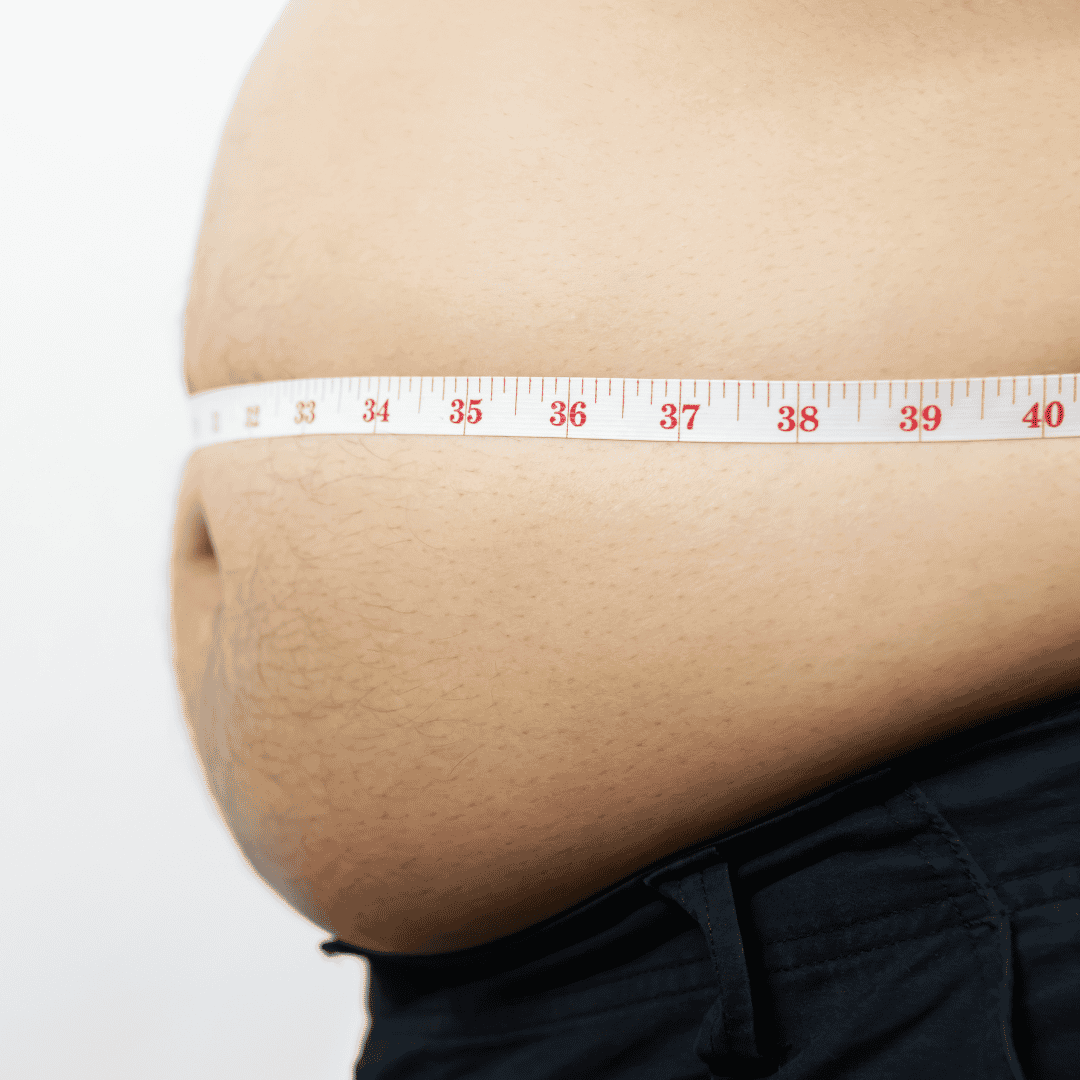












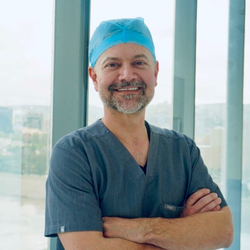
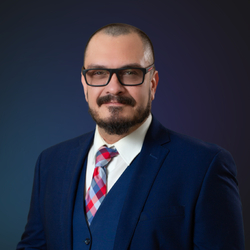
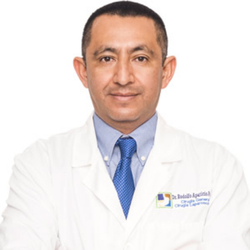


.png)



.png)
.png)
.png)
.png)




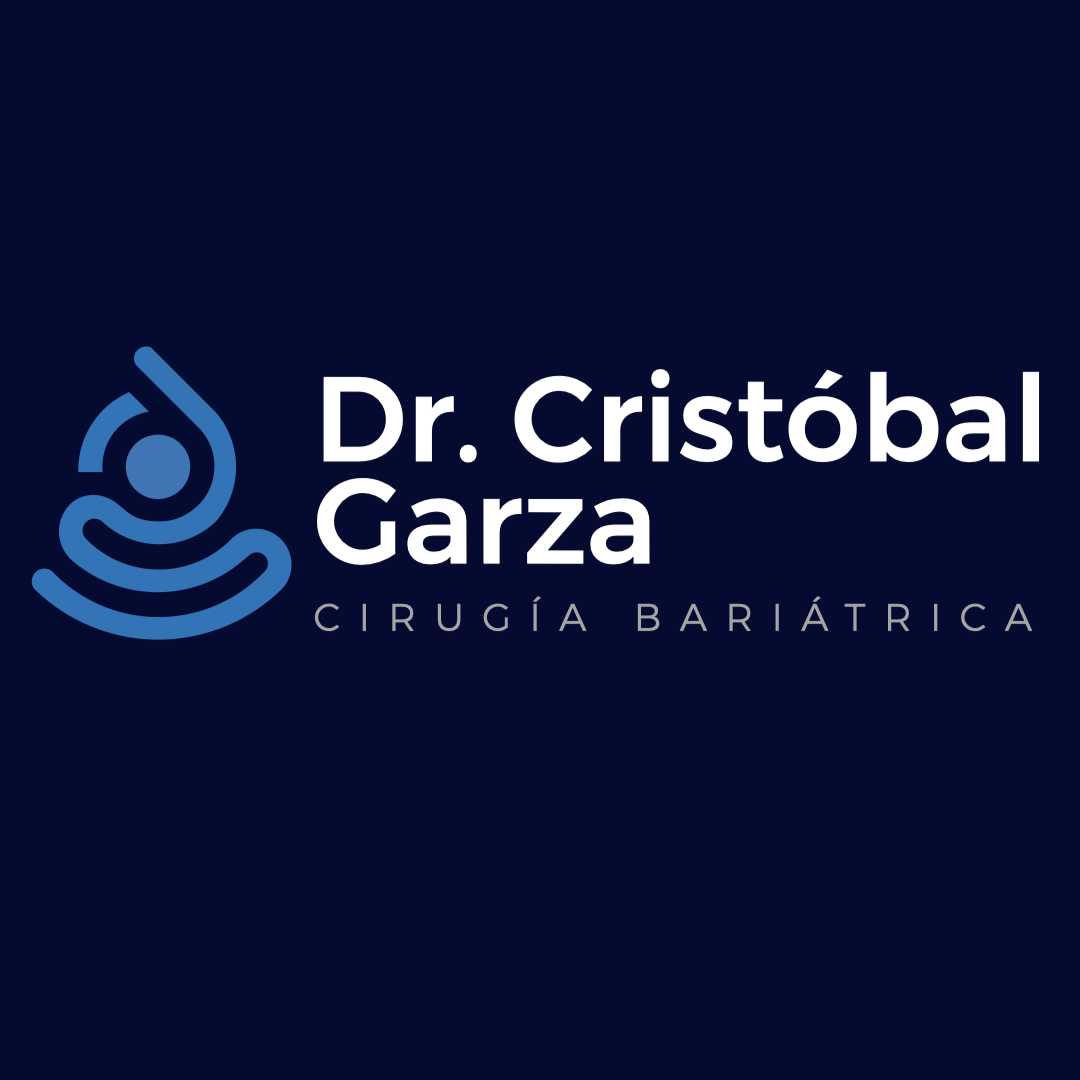

Share this listing